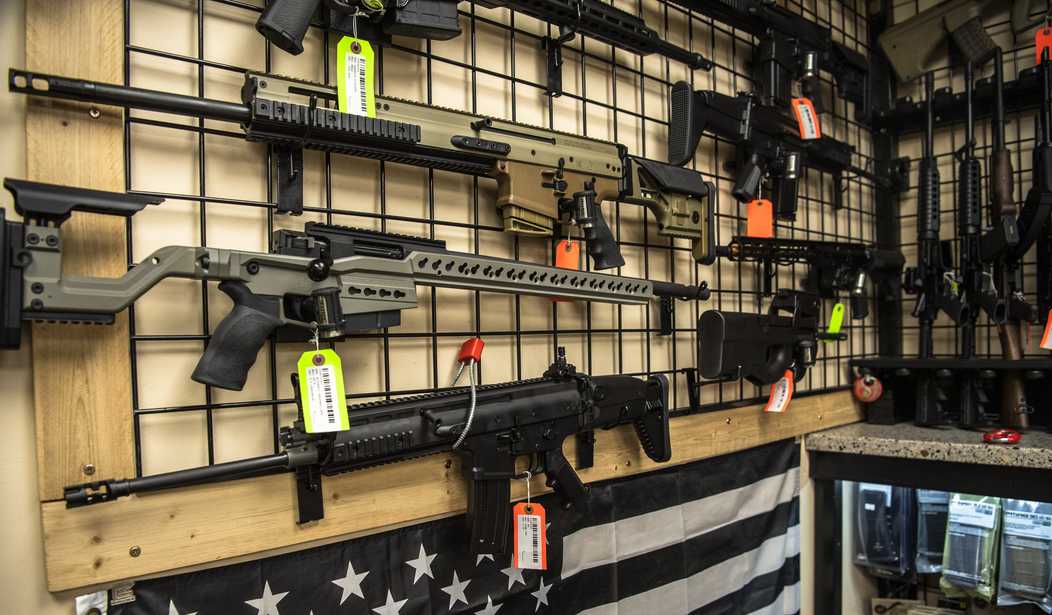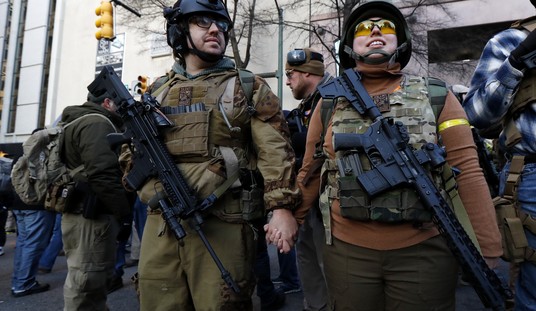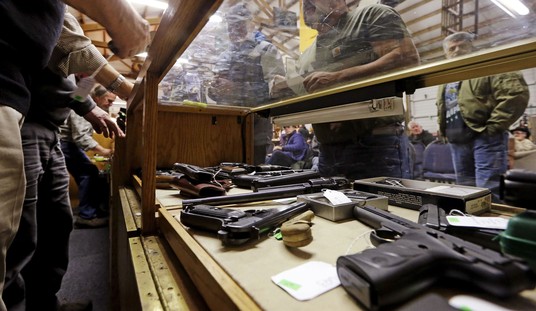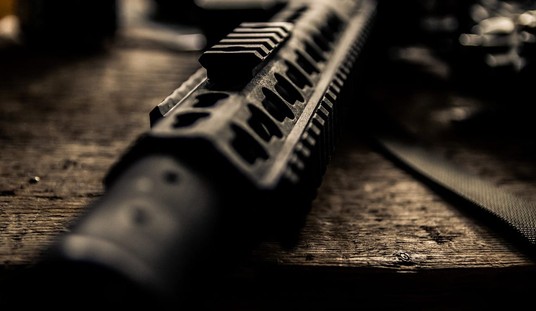We're still a few weeks away from learning whether the Supreme Court will accept a challenge to Illinois' gun and magazine ban, but more than half of the country's attorneys general are weighing in with support for the cert request.
Iowa Attorney General Brenna Bird is among those touting the amicus brief authored by the AGs in Indiana and Idaho urging the Court to take up the case of Barnett v. Raoul and several associated cases. In a press release Bird called the magazine and "assault weapons" ban imposed by the Protect Illinois Communities Act "an outright assault on Americans’ Second Amendment rights." The brief itself goes even further, pointing out the duplicitous manner in which the Seventh Circuit has treated the gun control law to date.
As the attorneys general write, the Seventh Circuit's analysis "should have been simple." The law in question bans firearms and magazines that are lawfully possessed by millions of gun owners. It squarely infringes on their right to keep "arms", which means it's up to the state of Illinois to point to a national tradition of similar regulations dating to the time of the Second Amendment's ratification (or maybe the Fourteenth Amendment's adoption), but there is no tradition of limiting firearm capacity or banning commonly-owned firearms.
The Seventh Circuit got around that problem by declaring that the arms in question aren't protected by the Second Amendment at all because they're too “militaristic". The court went even further, asserting that "history supports a distinction between militaristic and nonmilitaristic weapons," even though the Supreme Court held in Miller that the arms protected by the Second Amendment are those that are most useful in militia service.
The Seventh Circuit’s analysis bears no resemblance to the analysis prescribed by this Court. The majority quoted Heller’s instructions that “Arms” includes “all firearms” and “all . . . bearable arms”—but immediately disregarded them. Instead, seizing on dicta from Heller regarding machine-gun ownership, the Seventh Circuit surmised that the “correct meaning of ‘Arms’” categorically excludes “weapons that are exclusively or predominantly useful in military service, or weapons that are not possessed for lawful purposes.”
The AGs point out that even if that was the standard adopted by the Supreme Court (and it's most certainly not), the AR-15 and other firearms banned under PICA are not in regular use in the military, but are commonly owned by American civilians. But the AGs also argue the Seventh Circuit’s "artificial divide between 'militaristic' firearms and firearms used for self-defense is indefensible."
While this Court has emphasized that the right to keep and bear arms goes beyond the militia to include an individual right to self-defense, “[P]reserving the militia” and “hunting” are additional legitimate reasons “Americans valued the ancient right.” Heller, 554 U.S. at 599; id. at 581 (noting that definition of “arms” included “instruments of offence generally made use of in war” (cleaned up)). Indeed, it was not long ago that Illinois itself argued to this Court that the Second Amendment protected only militaristic firearms. See District of Columbia v. Heller, No. 07-290, 2007 WL 2962910, at *6 (U.S. Oct. 5, 2007) (arguing as an amicus party that the Second Amendment only protected firearms that are “ordinary military equipment”).
There’s good reason why the Second Amendment protects many so-called “militaristic” arms. The Framers included the right as “a strong moral check against the usurpation and arbitrary power of rulers” that would “enable the people to resist and triumph over them.” 3 J. Story, Commentaries on the Constitution of the United States: Amendments to the Constitution § 1890, at 746 (1833). That is why they referred to the right as “the true palladium of liberty” and warned that government narrowing the right would place liberty “on the brink of destruction.” Tucker, supra, at 238–39; see also McDonald v. City of Chicago, 561 U.S. 742, 769 (2010). And the militia—a citizen military force armed with personal weapons—was seen as necessary to secure liberty and repel tyranny.
I'm so happy to see these attorneys general acknowledge that the Second Amendment isn't just about self-defense. It's about the right to keep and bear arms for all lawful purposes, and while self-protection may be at the core of the right, that's not the only reason for its existence or the only gun-involved activity it protects.
The AGs then deliver what should be the fatal blow to the Seventh Circuit's defense of Illinois' gun and magazine ban.
The distinction between “militaristic” firearms and firearms used for self-defense does not make sense on its own terms, either. For one, it appears any firearm can be classified as “militaristic.” Consider the 1911. It is arguably the most popular handgun in the world—protected by the Second Amendment per the express holdings of Bruen and Heller—and yet Colt designed it at the request of, and for, the U.S.military. The 1911 is far more “militaristic” than the AR-15 banned by Illinois, which the U.S. military has not adopted. The Seventh Circuit’s rationale would therefore justify banning the 1911, even though the Court has already said it cannot be banned. If “virtually every covered arm would qualify as [militaristic],” then that cannot be the touchstone of Second Amendment protection. Caetano v. Massachusetts, 577 U.S. 411, 417–18 (2016) (Alito, J.,concurring) (rejecting a “dangerous” test for the same reason); App.89–99 (Brennan, J., dissenting).
I encourage you to read the entire amicus brief when you have a few minutes. At 20 pages, it's not particularly long, and it's refreshingly free of a lot of legalese. Instead, it provides a clear and succinct argument against the Seventh Circuit's decision, how other lower courts around the country are similarly abusing and misreading the Bruen decision, and why the Court needs to step in now rather than wait for the case to be fully litigated in the lower courts. I hope the justices find the AGs arguments as compelling as I did. If they do, then we could see oral arguments over Illinois' gun and magazine ban take place before SCOTUS this fall.









